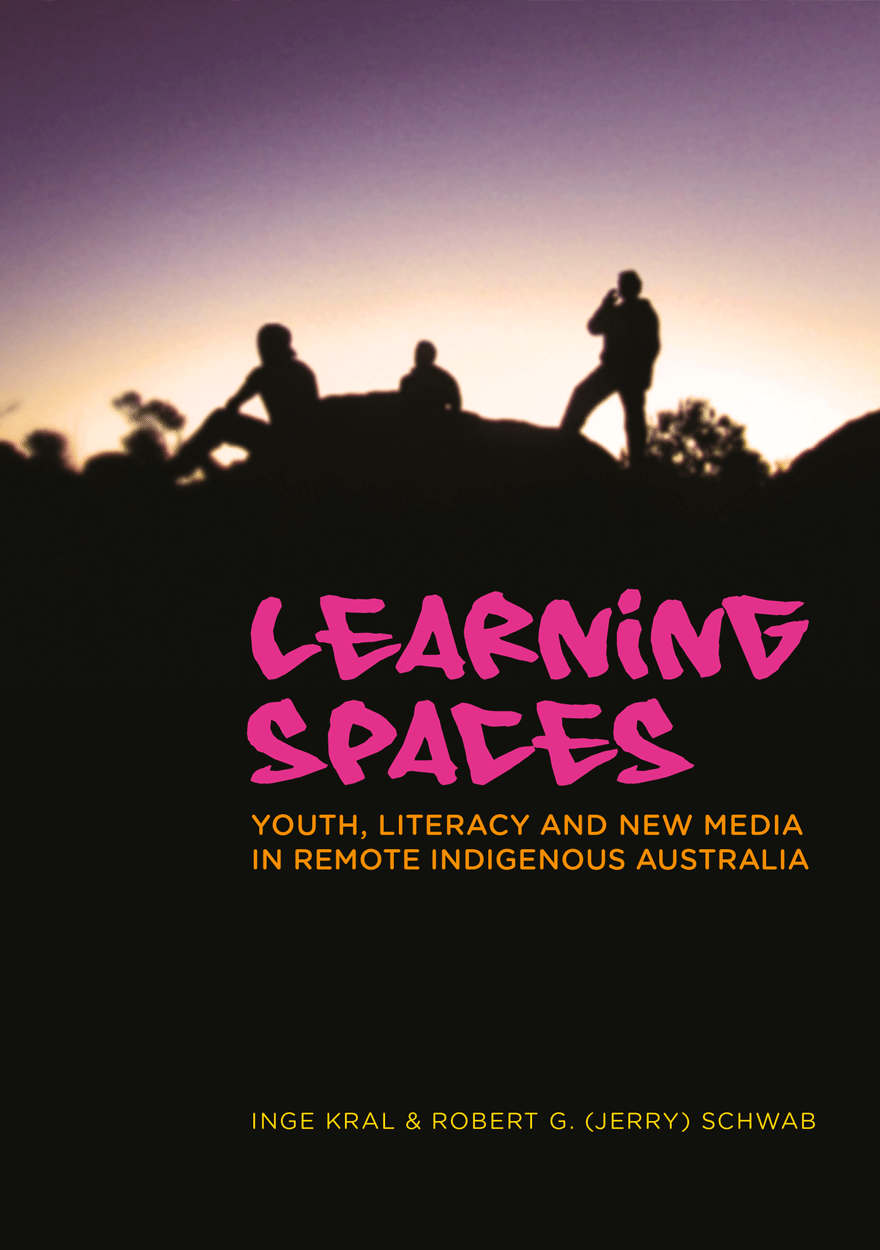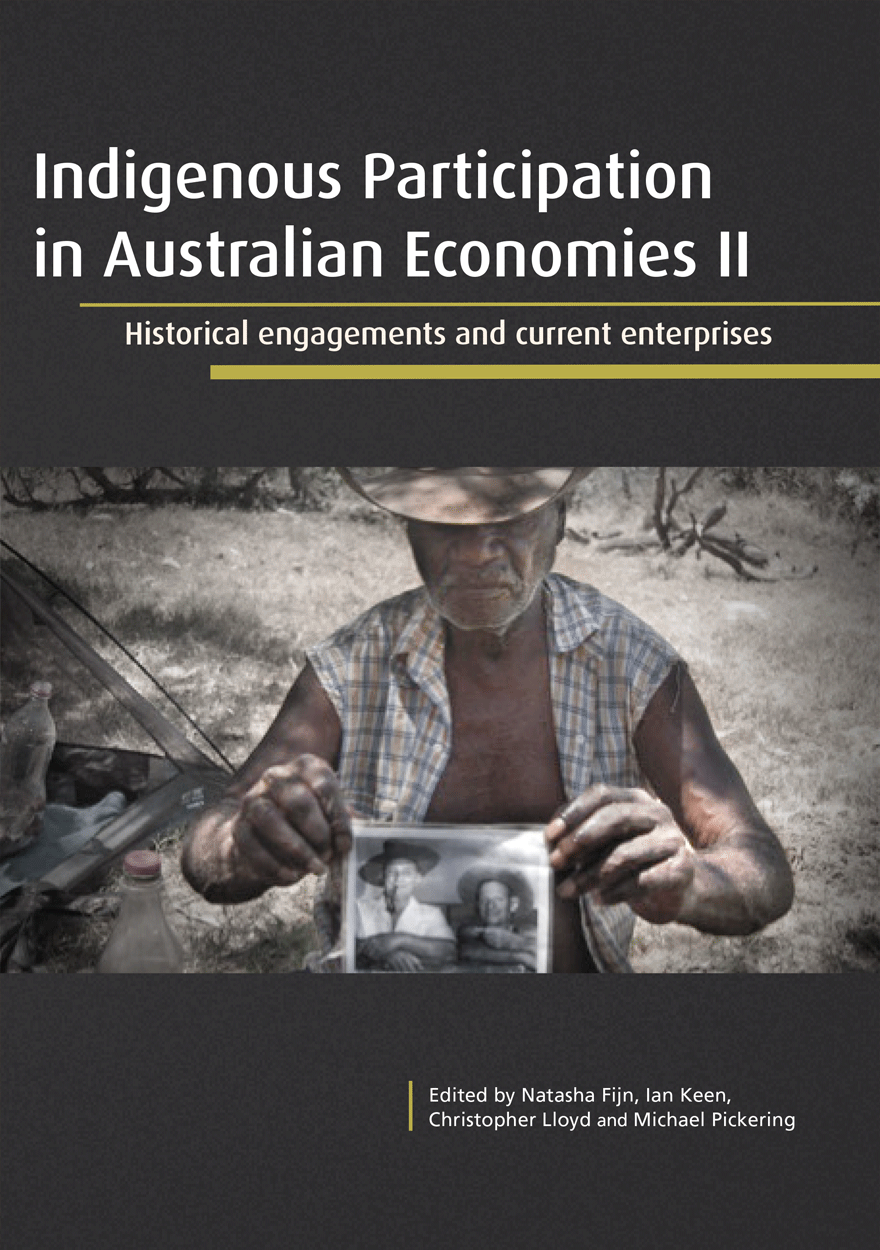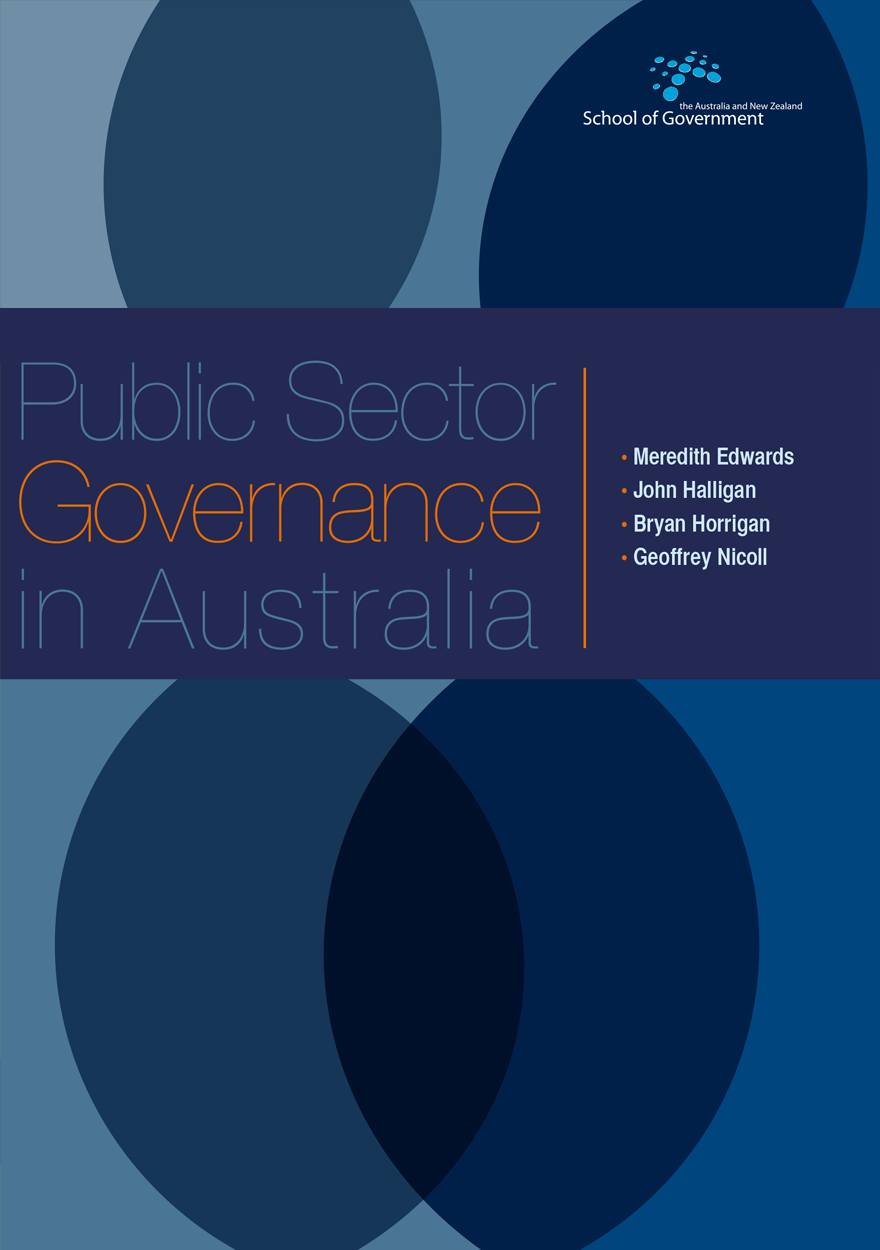Search titles
Displaying results 731 to 740 of 1156.

Learning Spaces »
Youth, Literacy and New Media in Remote Indigenous Australia
Authored by: Inge Kral, Robert G. Schwab
Publication date: August 2012
'This work offers us the rare opportunity to step inside innovative uses of technologies, mergers of global technologies into local knowledge, and community advocacy of local history and ideology…The young people who move through these pages are motivated and proud of having had the opportunities that make possible their linking together of historical knowledge and contemporary means of communication and performance. The means illustrated here have enabled them to develop skills that will help them move into the future as adults engaged with the health and life of their own communities, connected to their language and culture as their way of being in the world of the local so as to know the world of the global.'
Professor Shirley Brice Heath
Stanford University, USA

Engendering Violence in Papua New Guinea »
Edited by: Margaret Jolly, Christine Stewart, Carolyn Brewer
Publication date: July 2012
This collection builds on previous works on gender violence in the Pacific, but goes beyond some previous approaches to ‘domestic violence’ or ‘violence against women’ in analysing the dynamic processes of ‘engendering’ violence in PNG. ‘Engendering’ refers not just to the sex of individual actors, but to gender as a crucial relation in collective life and the massive social transformations ongoing in PNG: conversion to Christianity, the development of extractive industries, the implanting of introduced models of justice and the law and the spread of HIV. Hence the collection examines issues of ‘troubled masculinities’ as much as ‘battered women’ and tries to move beyond the black and white binaries of blaming either tradition or modernity as the primary cause of gender violence. It relates original scholarly research in the villages and towns of PNG to questions of policy and practice and reveals the complexities and contestations in the local translation of concepts of human rights. It will interest undergraduate and graduate students in gender studies and Pacific studies and those working on the policy and practice of combating gender violence in PNG and elsewhere.

Indigenous Participation in Australian Economies II »
Historical engagements and current enterprises
Publication date: July 2012
This is the second volume to emerge from a project on Indigenous participation in the Australian economy, funded by an Australian Research Council (ARC) Linkage Grant, and involving the cooperation of the School of Archaeology and Anthropology at The Australian National University and the National Museum of Australia. The Chief Investigators were Ian Keen, Chris Lloyd, Anthony Redmond, the Partner Investigator was Mike Pickering, Fiona Skyring was an associate researcher on the project, and Natasha Fijn was research assistant. The present volume arises out of a conference in Canberra on Indigenous Participation in Australian Economies at the National Museum of Australia on 9–10 November 2009, which attracted more than thirty presenters. The diverse themes included histories of economic relations, the role of camels and dingoes in Indigenous–settler relations, material culture and the economy, the economies of communities from missions and stations to fringe camps and towns, the transitions from payment-in-kind to wage economies and Community Development Employment Projects, the issue of unpaid and stolen wages, local enterprises, and conflicts over development. Sixteen of those papers have been developed as chapters in this volume, together with a foreword by Professor Jon Altman. This book comprises a companion volume to Indigenous Participation in Australian Economies: Historical and Anthropological Perspectives, published by ANU Press in 2010.

Public Sector Governance in Australia »
Authored by: Meredith Edwards, John Halligan, Bryan Horrigan, Geoffrey Nicoll
Publication date: July 2012
Australia lacks a scholarly book that covers recent developments in public sector governance in Australia and blends cross-disciplinary perspectives from law, management, public administration and public policy. The primary reason for writing this book is to fill the gap in the treatment of this subject, and to provide insights from empirical evidence and current practice.
The book provides the first comprehensive theoretical and empirical work on governance in the Commonwealth public sector. It addresses the issues that emerged under the Howard government as well as their handling under the Rudd and Gillard governments. The book aims to enhance understanding of and communication about public governance across government, industry and the community.
The authors bring to this book expertise gained from political science, public administration and policy, public and private sector law.

Rebalancing and Sustaining Growth in China »
Edited by: Huw Mckay, Ligang Song
Publication date: July 2012
The idea that China’s economy needs to rebalance is no longer controversial inside or outside the country. Whether it be the increasing recognition of income inequality at home; the still large external surplus; the focus on consumption and industrial upgrading in the policy discourse; the economic, political and social tensions associated with the major decline in housing affordability; the profound conflict between industrialisation, urbanisation and the biosphere; the profitability gulf between the top SOEs and private firms; or the uni-directional pressures pushing on the real exchange rate; the evidence in favour of a highly imbalanced structure is omnipresent.
Rebalancing and Sustaining Growth in China brings together some of the world’s leading observers of the Chinese economy to debate the multifarious questions pertaining to rebalancing. How are we to make sense of the many, often contradictory, proposals that seek the same ultimate objective of a more sustainable growth model? What mix of policies will be most effective in addressing the required structural change without sacrificing prosperity along the way? Where should we look for root causes, and how can we avoid getting distracted by symptoms? How do China’s unique internal migration dynamics – and the Lewis turning point – constrain its options? What role will and should financial, fiscal and welfare reform play in the process? Where do water and energy security fit in? Can China innovate before it gets old – or can China get smart before it gets rich? And are intergenerational issues being taken into account?

Agenda - A Journal of Policy Analysis and Reform: Volume 19, Number 1, 2012 »
Edited by: William Coleman
Publication date: July 2012
Agenda is a refereed, ECONLIT-indexed and RePEc-listed journal of the College of Business and Economics, The Australian National University. Launched in 1994, Agenda provides a forum for debate on public policy, mainly (but not exclusively) in Australia and New Zealand. It deals largely with economic issues but gives space to social and legal policy and also to the moral and philosophical foundations and implications of policy.
Subscribe to the Agenda Alerting service if you wish to be advised on forthcoming or new issues.
Download for free
Not available for purchase

Directions in Australian Electoral Reform »
Professionalism and Partisanship in Electoral Management
Authored by: Norm Kelly
Publication date: May 2012
Australia has a proud history of being an international leader in electoral administration, and Australian electoral commissions continue to have a professional, non-partisan approach to the management of elections. Yet their independence is constrained by the electoral laws they need to administer, and parliamentary committees charged with the oversight of the conduct of elections do so with a clear partisan bias.
Elections are all about winners, but who decides who the winners will be? Voters definitely have a big say, but it is the electoral system that determines how votes translate into seats in parliament. Any changes to the electoral system require the support of those in power, and it is important to question who benefits from electoral reforms. It is not surprising that partisanship plays a role and that governing parties usually benefit, although that is not always the case.
This book assesses Australian electoral reforms of the past 30 years using personal interview data and parliamentary debates, to provide a picture of the reform process as well as the outcomes. These issues, such as who gets to vote, the use of postal voting, party registration and vote weighting, have a profound impact on who wins elections. The book also examines Australia’s electoral administration, testing for professionalism, independence and integrity.

Rising China: Global Challenges and Opportunities (Chinese version) »
崛起的中国:全球机遇与挑战(预售)
Edited by: Jane Golley, Ligang Song
Publication date: May 2012
“中国经济前沿”丛书致力于对中国经济发展中的热点问题提供最新的研究成果与解读视角,作者均为国内外相关研究领域最具权威或居于研究前沿的学者。收录的论文无论在理论研究还是实证分析方面,都具有相当高的水准。本书集中于全球金融危机对中国的影响,分别从经济、地缘政治和环境气候变化视角解读世界和中国未来的发展走势。
Chinese print version of this book is available from Social Science and Academic Press

A Trial Separation »
Australia and the Decolonisation of Papua New Guinea
Authored by: Donald Denoon
Publication date: May 2012
When it came in September 1975, Papua New Guinea’s independence was marked by both anxiety and elation. In the euphoric aftermath, decolonisation was declared a triumph and immediate events seemed to justify that confidence. By the 1990s, however, events had taken a turn for the worse and there were doubts about the capacity of the State to function. Before independence, Papua New Guinea was an Australian Territory. Responsibility lay with a minister in Canberra and services were provided by Commonwealth agencies. In 1973, Prime Minister Gough Whitlam declared that independence should be achieved within two years. While Australians were united in their desire to decolonise, many Papua New Guineans were nervous of independence.
This superlative history presents the full story of the ‘trial separation’ of Australia and Papua New Guinea, concluding that — given the intertwined history, geography and economies of the two neighbours — the decolonisation project of ‘independence’ is still a work in progress.

East Asia Forum Quarterly: Volume 4, Number 2, 2012 »
Publication date: May 2012
East Asia Forum Quarterly grew out of East Asia Forum (EAF) online, which has developed a reputation for providing a platform for the best in Asian analysis, research and policy comment on the Asia Pacific region in world affairs. EAFQ aims to provide a further window onto research in the leading research institutes in Asia and to provide expert comment on current developments within the region. The East Asia Forum Quarterly, like East Asia Forum online, is an initiative of the East Asia Forum (EAF) and its host organisation, the East Asian Bureau of Economic Research (EABER) in the Crawford School of Economics and Government in the College of Asia & the Pacific at The Australian National University.
Download for free
Not available for purchase



